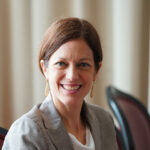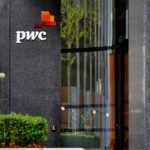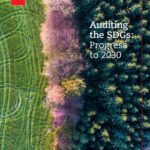(Published in The Financial Times of 26 june 2001)
Investors are behind an upsurge in auditing for ethics, says Alison Maitland
The UK-based chip designer ARM Holdings thinks it is doing pretty well by its shareholders, staff, customers and local community. Why then does it feel the need to submit to an independent audit?
Primarily because of mounting pressure from institutional investors, says Jonathan Brooks, chief financial officer of ARM, which joined the FTSE 100 index in 1999 and has been trading for only a decade.
We have to do a lot to meet increasing standards, whether in corporate governance or corporate social responsibility [CSR], he says. We’ve only had the sort of scrutiny that the largest companies get for about a year and a half.
The past year has seen a sharp rise in questions asked by pension funds and organisations such as Pirc, the corporate governance group, and the National Association of Pension Funds. They want to know what progress you’re making.
Mr Brooks decided the simplest way to demonstrate ARM’s credentials was to sign a 21-point charter drawn up by the Institute of Business Ethics for Good-Corporation, a commercial venture promoting corporate social responsibility.
ARM is one of two large companies – the other is Ladbrokes, the betting division of Hilton – among the first 10 organisations to win the GoodCorporation badge from the venture, which has its formal launch next week.
Each has been checked by independent auditors for its adherence to the 21 principles, which cover good practice towards employees, customers, suppliers, the community, the environment and shareholders.
With respect to our institutional investors, we can say: ‘This [badge] must give you some reassurance’, says Mr Brooks.
What I like about GoodCorporation is that it says: ‘We’ll define what you need to do.’ If I didn’t have this tool, I’d be asking: ‘How far do I have to go? How much time should I invest?’
The three-week verification process took place at three ARM sites. KPMG carried out an audit in Cambridge, England, while checks in Austin, Texas, and in Tokyo were done by Societe Generale de Surveillance, the Swiss inspection and certification group.
The auditors examined employment contracts and policies, checked the time it took the company to pay suppliers, talked to customer support staff about complaints procedures and looked at donations to charity and community activities.
Mr Brooks says some of the principles, such as fair treatment of employees and customers, clearly benefit the bottom line. Others are more vague, such as the statement: We aim to be sensitive to the local community’s cultural, social and economic needs.
The company found it already held many of the principles, including equal opportunities, not employing under-age staff and keeping shareholders aware of matters affecting prospects.
But the audit, repeated annually, has given it the impetus to improve, for example in terms of the environment. ARM designs microprocessors for mobile phones, personal computers and hand-held computer games and licences its intellectual property. It does not manufacture anything. We’re basically offices, people, desks and computers, so our environmental policy is limited compared to, say, BP. We’re not actively polluting. But we have to have some targets, for example to improve our recycling and energy consumption.
That may not be easy. The company has nearly 700 staff at 18 sites in seven countries. Employment policies may not differ much between sites but it is harder to check on small offices.
Mr Brooks equates auditing for CSR with financial auditing, in terms of necessity as well as cost and management time. Annual fees range from about £500 for a sole trader with no staff, to about £9,000 for companies employing more than 1,000.
Surely the difference from financial auditing is that signing such a charter may open companies to unwelcome scrutiny?
He acknowledges there may be risks. Instead of hoping to remain part of a virtuous minority, he says: If everyone jumps on the bandwagon, that will be great for all of us.



